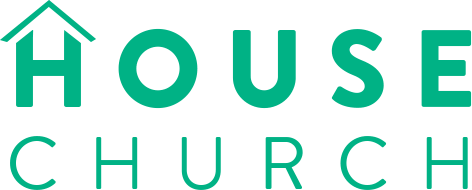Foundation Series: Prayers of the People
 If you’ve attended a Parish Gathering, you’ll probably notice that our typical worship experience may look a little different than you’re used to. We read a few passages of scripture, read some phrases out loud together, the message is pretty short, and we always take communion. These are all pretty different than the kind of church that I grew up in. But without a doubt, the thing that is the most different for me is something we call the “Prayers of the People.” We do it every week, and it’s a pretty substantial part of what we do. So what is this “Prayers” section, and why do we do it?
If you’ve attended a Parish Gathering, you’ll probably notice that our typical worship experience may look a little different than you’re used to. We read a few passages of scripture, read some phrases out loud together, the message is pretty short, and we always take communion. These are all pretty different than the kind of church that I grew up in. But without a doubt, the thing that is the most different for me is something we call the “Prayers of the People.” We do it every week, and it’s a pretty substantial part of what we do. So what is this “Prayers” section, and why do we do it?
Actually, it’s not something we came up with at all. In fact, it comes straight from the Book of Common Prayer, which reaches all the way back to the year 1549. (To find out more about the Book of Common Prayer, check out last week’s Foundations Series blog). In fact, when Thomas Cranmer sat down to compile the BCP all those centuries ago, he went to two main sources: Scripture, and what we know about the early church. In doing so, Cranmer placed a huge emphasis on corporate prayer right smack in the middle of the weekly service. And I’m so glad it’s still that way today.
When we began dreaming up what a church like The Parish would look like, we knew that prayer needed to play a huge role in our worship. In fact, we believe strongly that prayer is a part of our worship of God, not just a side-show or a transition to help us get between other activities. The Scriptures are full of imperatives to pray, both individually and corporately. In fact, one of the earliest descriptors of what the church first looked like included prayer as a core element:
“They devoted themselves to the apostles’ teaching and to the fellowship, to the breaking of bread and to prayer.” Acts 2:42
Sound familiar? Teaching, fellowship, breaking of bread, and prayer. Each element is very important, and our hope is that we can hold all four of these in a good balance each week.
So when you come to The Parish and you hear us introduce the Prayers of the People, here’s a few things to keep in mind:
- We didn’t make this up. In fact, even Cranmer didn’t make this up in the 1500s. This tradition is as old as the church itself, and is an important part of the life of a church.
- We don’t just pray for ourselves. The Book of Common Prayer lays several different ways to pray, all of them with unique wording and language. But all of them share the same pattern: they focus on praying for the Church (big “C” Church around the world), the world, the local community, and those who suffer. You might be thinking, “what about my prayer requests?” Well, for the most part, these prayers help us focus on others first. They remind us that the world is so much bigger than our personal struggles and problems, and sometimes that may be just the answered prayer we need!
- It may feel a little funny, but it’s worth it. Silence is something we avoid at all costs. We try to fill up our lives with noise at every turn, and when silence happens we often don’t know what to do. So if you find yourself in the middle of the Prayers and your thoughts wander, it’s totally okay. Our hope is that over time, we will gradually learn to focus our minds and hearts on God and communicate with Him in a powerful way. It will take time and practice, but don’t give up, it’s worth it in the end.
One more important word on prayer. We want to be a church community that prays for one another daily, so if you have a specific need, please let us know. You can contact us via the website, talk to one of our leaders at a Parish Gathering, or talk to the host of your Table Group. We would love to pray with you and for you, and would love to get others praying for you as well.
So the next time you attend a Parish Gathering, or the next time you bow your head in prayer at any other church or mealtime, take a moment to pause and remember how important that moment can be. Take a moment to look outside yourself and pray for the people in the Church, the world, and your community, and see how God begins to move.

